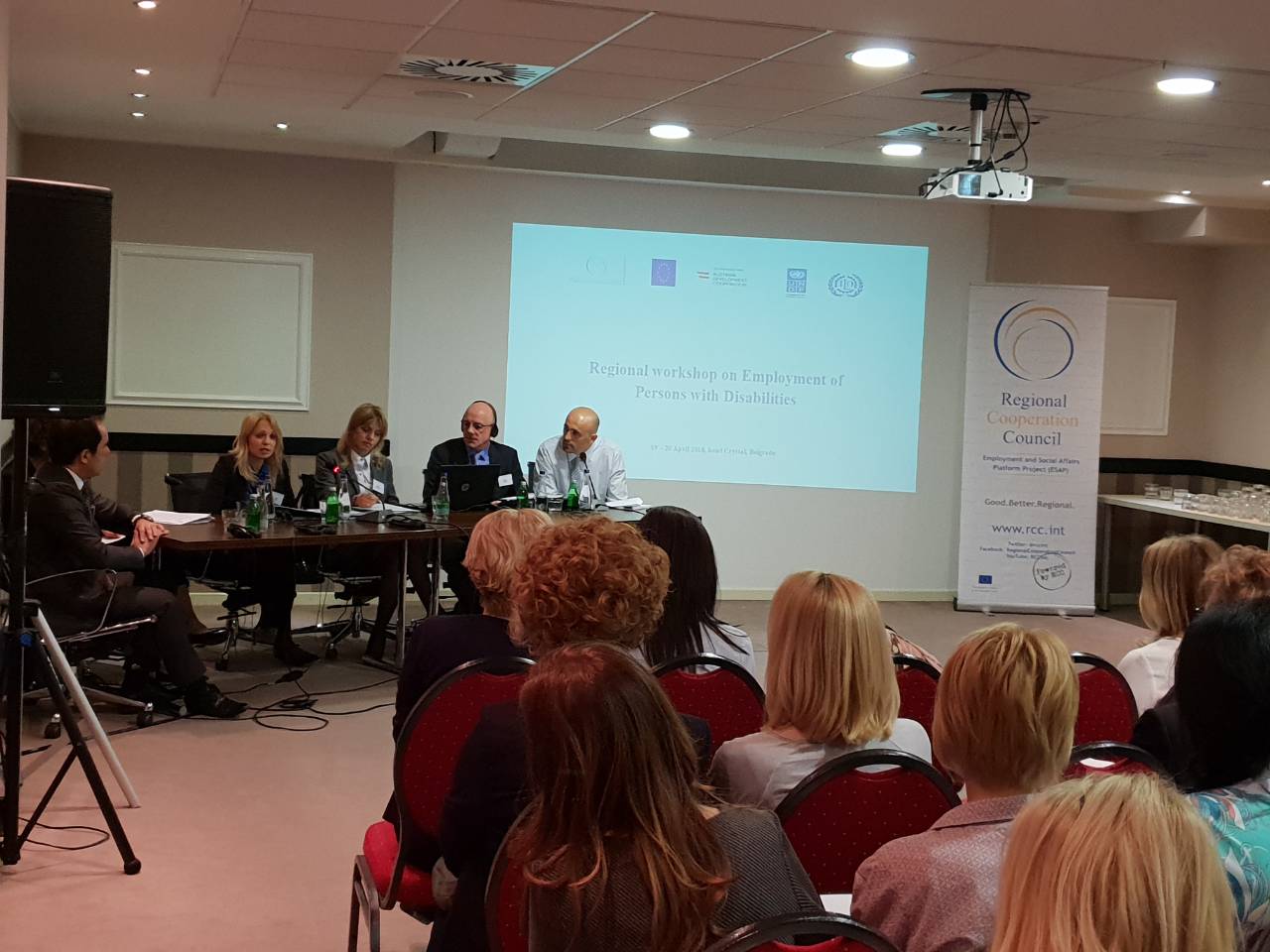ESAP: Regional Workshop on Employment of Persons with Disabilities in the Western Balkans
20 April 2018

Regional Workshop on Employment of Persons with Disabilities (PWD) in the Western Balkans (WB), in Belgrade on 19-20 April 2018 (Photo: RCC/Sanda Topic)
Belgrade – The Regional Workshop on Employment of Persons with Disabilities (PWD) in the Western Balkans (WB), which was held in Belgrade on 19-20 April 2018, was organised jointly in the framework of two regional projects: Regional Cooperation Council’s (RCC) Employment and Social Affairs Platform (ESAP) and Promoting Inclusive Labour Market Solutions in the Western Balkans.
The Workshop focused on legal and strategic framework for professional rehabilitation and employment of PWD in Serbia and other Western Balkans economies; policy measures and labour market interventions for the activation of PWDs’ incentives and employers’ approach to employment of PWD; implementation of company-wide disability inclusion policies and promotion of valuable initiatives; and success factors as transferability, lessons learned and recommendations.
The participants engaged in a constructive dialogue, heard exchange of views between government representatives and employers’ organizations, shared innovative practices in inclusive services as well as lessons learned from good practices in the Western Balkans and world-wide.
This two-day workshop brought together beneficiaries from Western Balkans economies, from different sectors: representatives of the government institutions dealing with the employment and social protection of persons with disabilities, public employment services (PES), and employers’ organizations.
Under ESAP, the WB economies have agreed to implement peer reviews on selected priority employment policies or measures. The peer reviews aim to facilitate learning, discussion and capacity building on policy development and implementation. They represent an in-depth assessment of an employment policy in one economy by representatives of other economies from the WB, with the goal of providing feedback to the host institution to improve its performance within that policy field and for the guest institutions to learn from the host country’s experience.



